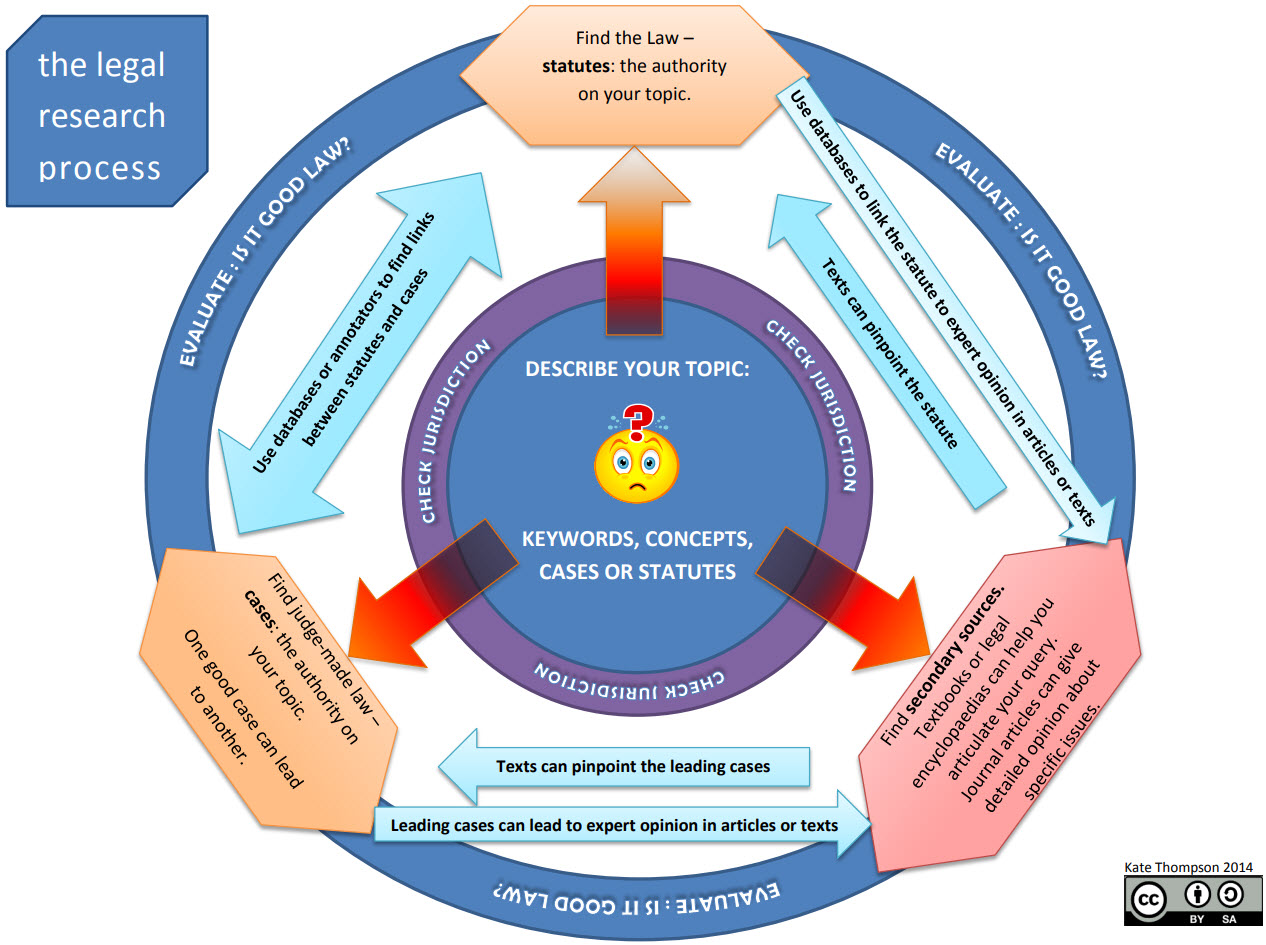13 Finding a Case
Kate Thompson
There are two approaches to finding cases:
- using the citation or some other information about a known case;
- looking for relevant cases, if there are any, while researching a legal problem.
Finding a Known Case
The known-case approach relies on having some details about the case – either the case citation, the judge’s name, the date of hearing or some other combination of details.
If there is a case citation, locating the decision is straightforward:
- Locate the law-report abbreviation.
- Decode the abbreviation to get the full report title.[1]
- Use your university or workplace library catalogue to find the law report title and from there identify whether is online access or a hardcopy version.
- Alternatively, type the citation into a legal database of the matching jurisdiction. You should, at the very least, find the unreported version.
Finding an Unknown Case
The diagram below demonstrates how you might locate an unknown case by approaching the problem in two different ways. You could start with a secondary source, such as a textbook, encyclopaedia or journal article. Alternatively, you could start with the relevant provisions of a statute. Chapter 5 also discusses this strategy in the legal research process.

Using secondary sources to find cases
Secondary sources such as legal encyclopaedias, books, articles and commentaries are often the best place to start when looking for case law, whether you want to understand a specific known case or you are looking for inspiration. Experts writing in secondary sources discuss and analyse important cases and the key points of law. Any good textbook on the subject will have a Table of Cases at the front or back of the book, so you can immediately see if the book analyses your case.
Using legislation to find cases
Many legal databases allow you to search for cases that cite and consider a particular section of an Act or of secondary legislation. Generally you can achieve this using the Advanced Search function in a database. Major law databases also provide analytics that allow you to find a section of an Act and then leapfrog to cases citing that provision.
Consider changing the ranking of any results you have so that decisions from higher courts occur at the top.
Keyword searching
Searching for cases by subject or topic can be difficult, especially if you are unsure of the jargon or legal terms that best describe the problem. It is almost always more efficient to identify relevant cases in secondary sources. The indexes at the back of textbooks are great places to glean relevant keywords, and legal databases often include catchwords and phrases in their case law results – similar to the set-up in reported cases’ headnotes.
Catchwords and phrases
The catchwords are a series of keywords and phrases, separated by dashes, added to the headnote of the case by the law reporter or publisher. The purpose is to describe the subject matter of the case quickly, including relevant legislation and provisions. See these example catchwords from R v Horsfall [2008] NZCA 449, (2008) 24 CRNZ 402:
Criminal law – Verdicts – Unreasonable and unsupportable – Insufficiency of evidence
Criminal law – Sentencing – Drug offences – Manufactured and sold Class A controlled drug methamphetamine
In some databases, these catchwords are active links, whereby clicking them sends you to all the other cases with that same catchword assigned to them. One good case finds another. The digest or summary briefly summarises the matter and outlines the key holdings of the case.
Full-text searching of cases
A full-text search looks for keywords across the entire text of the case.[2] This is the broadest type of search and will not only receive the largest number of results of all the searches but also the highest number of irrelevant results. Most databases use natural language searching, which may be good enough in some instances. Better results are obtained by using search functions, such as Boolean (OR / AND), phrase searching or proximity searching to “tighten” your results, and by making good use of the limits and filters upon search results. Your librarian can show you these techniques, and each database has a help section with tips on how to search effectively. Spending a little time planning your search, including how you might connect your keywords, can save significant time later.
Words and phrases judicially considered
Some legal databases will have an Advanced Search – Cases search template that includes the option to search for “words and phrases judicially considered”. This search will find decisions in which which judges have discussed or defined particular words and phrases.
- Use the Cardiff Index to Legal Abbreviations to decode the title abbreviation into the full title. ↵
- See Chapter 5. Legal Research Strategy for details. ↵

